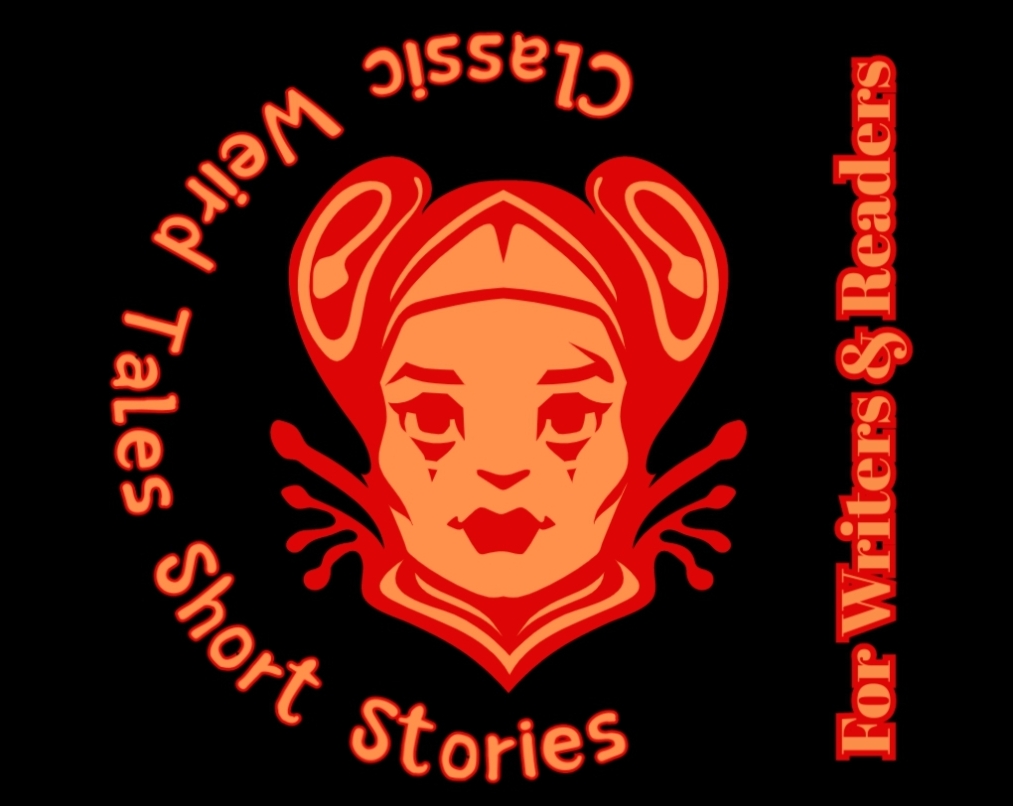Weird fiction is a subgenre of speculative fiction originating in the late 19th and early 20th centuries. Weird fiction either eschews or radically reinterprets ghosts, vampires, werewolves, and other traditional antagonists of supernatural horror fiction. Writers on the subject of weird fiction, such as China Miéville, sometimes use "the tentacle" to represent this type of writing. The tentacle is a limb-type absent from most of the monsters of European folklore and gothic fiction, but often attached to the monstrous creatures created by weird fiction writers, such as William Hope Hodgson, M. R. James, and H. P. Lovecraft. Weird fiction often attempts to inspire awe as well as fear in response to its fictional creations, causing commentators like Miéville to paraphrase Goethe in saying that weird fiction evokes a sense of the numinous. Although "weird fiction" has been chiefly used as a historical description for works through the 1930s, it experienced a resurgence in the 1980s and 1990s, under the labels of New Weird and Slipstream, which continues into the 21st century.
Definitions
John Clute defines weird fiction as a term "used loosely to describe fantasy, supernatural fiction and horror tales embodying transgressive material". China Miéville defines it as "usually, roughly, conceived of as a rather breathless and generically slippery macabre fiction, a dark fantastic ('horror' plus 'fantasy') often featuring nontraditional alien monsters (thus plus 'science fiction')". Discussing the "Old Weird Fiction" published in the late 19th and early 20th centuries, Jeffrey Andrew Weinstock says, "Old Weird fiction utilises elements of horror, science fiction and fantasy to showcase the impotence and insignificance of human beings within a much larger universe populated by often malign powers and forces that greatly exceed the human capacities to understand or control them." Jeff and Ann VanderMeer describe weird fiction as a mode of literature, usually appearing within the horror fiction genre, rather than a separate genre of fiction in its own right.
Notable Authors
The following notable authors have been described as writers of weird fiction. They are listed alphabetically by last name, and organised by the time period when they began to publish weird fiction.
Before 1940
Ryūnosuke Akutagawa
Roberto Arlt
R. H. Barlow
E.F. Benson
Ambrose Bierce
Algernon Blackwood
Robert Bloch
Marjorie Bowen
John Buchan
Leonora Carrington
Robert W. Chambers
Leonard Cline
Mary Elizabeth Counselman
Walter de la Mare
August Derleth
Lord Dunsany
E. R. Eddison
Guy Endore
Robert Murray Gilchrist
Stefan Grabiński
Sakutarō Hagiwara
L. P. Hartley
W.F. Harvey
Nathaniel Hawthorne
Lafcadio Hearn
Georg Heym
William Hope Hodgson
E. T. A. Hoffmann
Robert E. Howard
Carl Jacobi
Henry James
M.R. James
Franz Kafka
C. F. Keary
Alfred Kubin
Henry Kuttner
Vernon Lee
Joseph Sheridan Le Fanu
Fritz Leiber
David Lindsay
Frank Belknap Long
H. P. Lovecraft
Arthur Machen
Daphne du Maurier
Abraham Merrit
Gustav Meyrink
C. L. Moore
Fitz James O'Brien
Oliver Onions
Thomas Owen
Edgar Allan Poe
Horacio Quiroga
Edogawa Ranpo
Jean Ray
Tod Robbins
Eric Frank Russell
Bruno Schulz
Marcel Schwob
Walter Scott
Mary Shelley
M. P. Shiel
William Milligan Sloane III
Clark Ashton Smith
Eric Stenbock
Francis Stevens
Bram Stoker
E. H. Visiak
H. Russell Wakefield
Hugh Walpole
Evangeline Walton
Donald Wandrei
Howard Wandrei
H. G. Wells
Edward Lucas White
Henry S. Whitehead
1940–1980
Robert Aickman
J. G. Ballard
Charles Beaumont
Olympe Bhely-Quenum
Jerome Bixby
Jorge Luis Borges
Ray Bradbury
William S. Burroughs
Octavia E. Butler
Ramsey Campbell
Angela Carter
Julio Cortázar
Philip K. Dick
Thomas M. Disch
Harlan Ellison
Shirley Jackson
Stephen King
Tanith Lee
George R. R. Martin
Richard Matheson
Augusto Monterroso
Michael Moorcock
Haruki Murakami
Joyce Carol Oates
Mervyn Peake
Joanna Russ
Sarban
William Sansom
Claude Seignolle
Margaret St. Clair
Peter Straub
James Tiptree, Jr.
Amos Tutuola
Karl Edward Wagner
Manly Wade Wellman
Gahan Wilson
Gene Wolfe
1980–Present
Daniel Abraham
Michal Ajvaz
Nathan Ballingrud
Clive Barker
Laird Barron
David Beauchard
K. J. Bishop
Giannina Braschi
Poppy Z. Brite
Kevin Brockmeier
Charles Burns
Jonathan Carroll
David F. Case
Michael Chabon
Michael Cisco
Nancy Collins
Brendan Connell
Mark Z. Danielewski
Junot Diaz
Doug Dorst
Michael Dougherty
Hal Duncan
Katherine Dunn
Dennis Etchison
Brian Evenson
Paul Di Filippo
Jeffrey Ford
Karen Joy Fowler
Neil Gaiman
Felix Gilman
Elizabeth Hand
M. John Harrison
Brian Hodge
Wolfgang Hohlbein
Simon Ings
Junji Ito
Stephen Graham Jones
Caitlín R. Kiernan
T. E. D. Klein
Kathe Koja
Leena Krohn
Marc Laidlaw
Jay Lake
Margo Lanagan
John Langan
Joe R. Lansdale
Deborah Levy
Thomas Ligotti
Kelly Link
Brian Lumley
Carmen Maria Machado
Michael McDowell
Lincoln Michel
China Miéville
Sarah Monette
Grant Morrison
Reza Negarestani
Scott Nicolay
Jeff Noon
David Ohle
Ben Okri
Otsuichi
Helen Oyeyemi
Cameron Pierce
Rachel Pollack
W. H. Pugmire
Joseph S. Pulver, Sr.
Cat Rambo
Alistair Rennie
Matt Ruff
Sofia Samatar
Lucius Shepard
William Browning Spencer
Simon Strantzas
Charles Stross
Oh Seong-dae
R. L. Stine
Steph Swainston
Jeffrey Thomas
Karin Tidbeck
Lisa Tuttle
Steven Utley
Jeff VanderMeer
Liz Williams
Chet Williamson
F. Paul Wilson
Christopher Howard Wolf

No comments:
Post a Comment
Note: Only a member of this blog may post a comment.